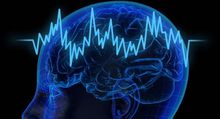
Electroconvulsive Therapy (ECT) involves applying a small electrical current through the brain. ECT is often used as a last-resort treatment for adults with treatment-resistant depression, bipolar disorder, and schizophrenia. Despite ECT continuing to be a controversial treatment, for people who have not experienced improvement from psychological and pharmacological treatments, it can be very helpful. In one study of 39 people with treatment-resistant depression, 71% of people who received ECT had a positive response to treatment after two to three weeks, compared to only 28% who received pharmaceutical antidepressants [1].
There continues to be uncertainty about how ECT works. It is most-commonly believed that it works by modifying neural activity and neurotransmitters associated with mood, motivation, and behaviour.
In one very interesting case study, researchers also found that ECT can modify the gut microbiome [2]. In this case study, a 59-year-old lady with schizophrenia underwent 14 ECT sessions. At the end of treatment there were significant changes in her gut microbiota. For example, clostridium levels reduced from 86.5% of her total bacterial flora to 72.5%, Lactobacillus increased from 1.2% to 5.5%, and Bacteroides increased from 9.1% to 31.5%.
There are increasing studies confirming a strong relationship between the gut and brain, and it is believed mental (and physical) health can be improved by targeting digestive health. In some studies, Clostridium species were increased in patients with schizophrenia compared to healthy individuals [3].
While it is difficult to form definitive conclusions based on this one study, the results are certainly interesting. There is a strong gut-brain connection and by improving digestive health and microbial diversity, mental health improvements may occur. The gut-brain axis is attracting increasing interest from researchers and clinicians and it makes sense to help optimise digestive health and function in people with depression, anxiety, bipolar disorder, schizophrenia, and other mental health problems. Fortunately, there are other less drastic ways to improve